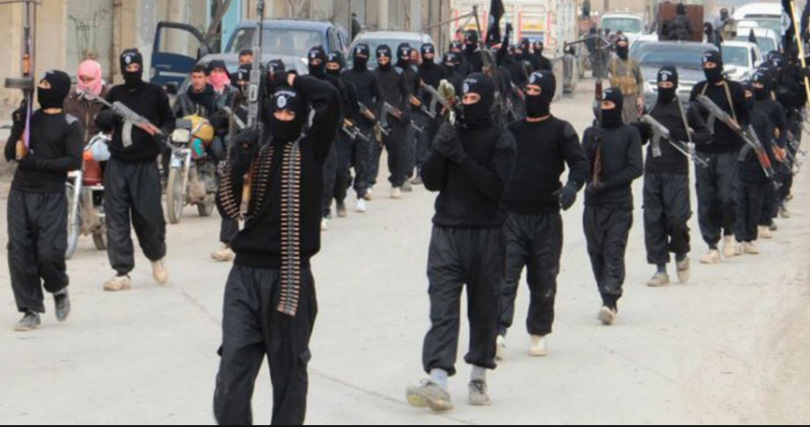aNewDomain — You know you’ve made it, you know things are going great, when the only weapon your enemies come close to deploying successfully is words.
— You know you’ve made it, you know things are going great, when the only weapon your enemies come close to deploying successfully is words.
Sticks and stones and all that, but the U.S.-led coalition against ISIS seems to think that acronyms really will hurt them. You can’t blame them — after all, drones and laser-guided missiles don’t seem to be making much of an impression.
The war of words against the bête noire that pushed Al Qaeda out of the fear section of the headlines seems, like the war on terror, to have no end in sight.
Most obvious is the ISIS vs. ISIL thing.
The media calls them ISIS (the Islamic State of Iraq and Syria); the Obama Administration calls them ISIL (the Islamic State in Iraq and the Levant).
The Levant, so you know, is an old term for what is now Lebanon and Syria.
But no one knows why the government calls them ISIL. White House allies say that throwing Lebanon into the mix highlights the group’s big territorial ambitions. Republicans think it’s a sinister attempt to frame ISIS as bigger than they really are, because they secretly sympathize with radical Islamism. (In the right-wing theory, the bombings serve as an explosive beard: we gotta do this to make it look good, but we’re still cool.)
I think it’s Obama’s childish way to screw with an adversary by refusing to call them by the name they call themselves — like how we still call Myanmar “Burma” and how Republicans call it the “Democrat” (as opposed to Democratic) Party.
Deprive the bastards of consistent branding! That’ll show them.
Some anti-ISIS/ISIL types prefer the Arabic acronym Daesh, because it (a) makes them sound smart and (b) Daesh sort of sounds like a dirty word in Arabic. Best use of this tactic so far goes to the New York Daily News, whose cover of a photo of the dead mastermind of the Paris attacks read: ‘Smile in Hell, Daesh Bag!’ “
Ironically, the group currently calls itself simply the IS, or Islamic State.
By way of background, there have been Islamic States before. During the 1996-2001 civil war, the Taliban government in Kabul was the Islamic Emirate of Afghanistan, while the Northern Alliance led by the Tajik warlord Ahmed Shah Massoud called itself the Islamic State of Afghanistan.
The word war also takes the form of slur by qualifier, as when NPR calls ISIS “the self-described Islamic State.” Apparently this is an attempt to deny them legitimacy along the lines, heard often by Western commentators, that it is neither Islamic nor a state.
While it is not for infidels to declare what is or isn’t Islamic — it seems pretty obvious that ISIS, which only admits Muslims, has a credible case to be called Islamic — the “self-declared” bit is undeniably silly. The United States, for example, is “self-declared.” We declared it on July 4, 1776. What nation isn’t self-declared? Or to look at it another way, if ISIS manages to keep the territory it controls long enough for the world to get tired of bombing it, international legitimacy — passports accepted at foreign airports, a seat at the UN, an Olympic team — will come in due time. We might even call them what they want to be called; after all, they’re not Myanmar, er, Burma.
If we’re not careful, their self-declared jihad on ISIS using “self-declared” as a diminutive slur — or “self-styled,” or some such variant — could spread like a linguistic virus and, to mix metaphors, wind up choking word flow like hyacinths in a Florida inland waterway. Where does it stop? “The self-declared cartoonist, self-declared Ted Rall, prefers computer gear by the self-declared Apple computer company …”
Please, NPR, just stop it.
If we double every word count, the terrorists (declared as such by us, not them) really will have won.
Last and also least, many Americans are engaged in war on the acronym ISIS wherever it appears, even when it has nothing to do with the guys who issue decapitation videos.
“Companies called Isis have been forced to confront how attached they are to the name. Isis was once the name of a mobile payment technology and a new condo building in Florida. They both changed their names last year. Isis Pharmaceuticals, a California biotech company founded in 1989, told CNN it is now discussing the same move,” reports the New York Times. Gotta love the qualifier “founded in 1989.” Just because the media uses an acronym for a terrorist group — an acronym the group itself no longer uses! — now it’s off-limits? Talk about extremist! As anyone who has traveled to Asia knows, even the swastika is still around. (It’s a symbol for pharmacies.) As is, by the way, Volkswagen — named by and founded by Hitler himself.
Thousands of women are named Isis, presumably after the (very cool-looking) ancient Egyptian goddess. Many, including children, are getting crap over their name — as if they were named after THE Isis that emerged in 2013.
One would like to think that we’re smarter than this.
What’s interesting about all this hand-wringing over nomenclature is that the phrase Islamic State has powerful symbolic resonance among Muslims as well as Western policymakers and their media allies. The IS has declared the century-old dream of restoring the caliphate to be a real-life accomplishment, right here, right now in the areas it controls in Iraq and Syria. Thanks to oil revenue, it is creating the trappings of a real state: ministries, media outlets, even coinage. Even secular Muslims who find the IS odious understand the yearning for a true caliphate.
The West’s attempts to deprive the IS of its own name are in part a response to their propaganda. But the ISIS vs. ISIL war of words is also about the West’s desire to control political narratives. You’re not really a country until the United States says so. East Timor, yes. Taiwan, no. France at the end of World War II? FDR made de Gaulle sweat it out, denying liberated France official recognition from early June to late August 1944. The Islamic State is bypassing the American system, creating its own reality as Bush’s bro-cons famously said back in the day. That, the U.S. cannot allow.
There is, however, room for optimism. Both sides, in what Robert Fisk called the Great War between civilizations, believe in the power of the phrase “Islamic State.”
That, and assassinating people.
So we’ve got stuff in common. We do.
For aNewDomain, I’m Ted Rall.













